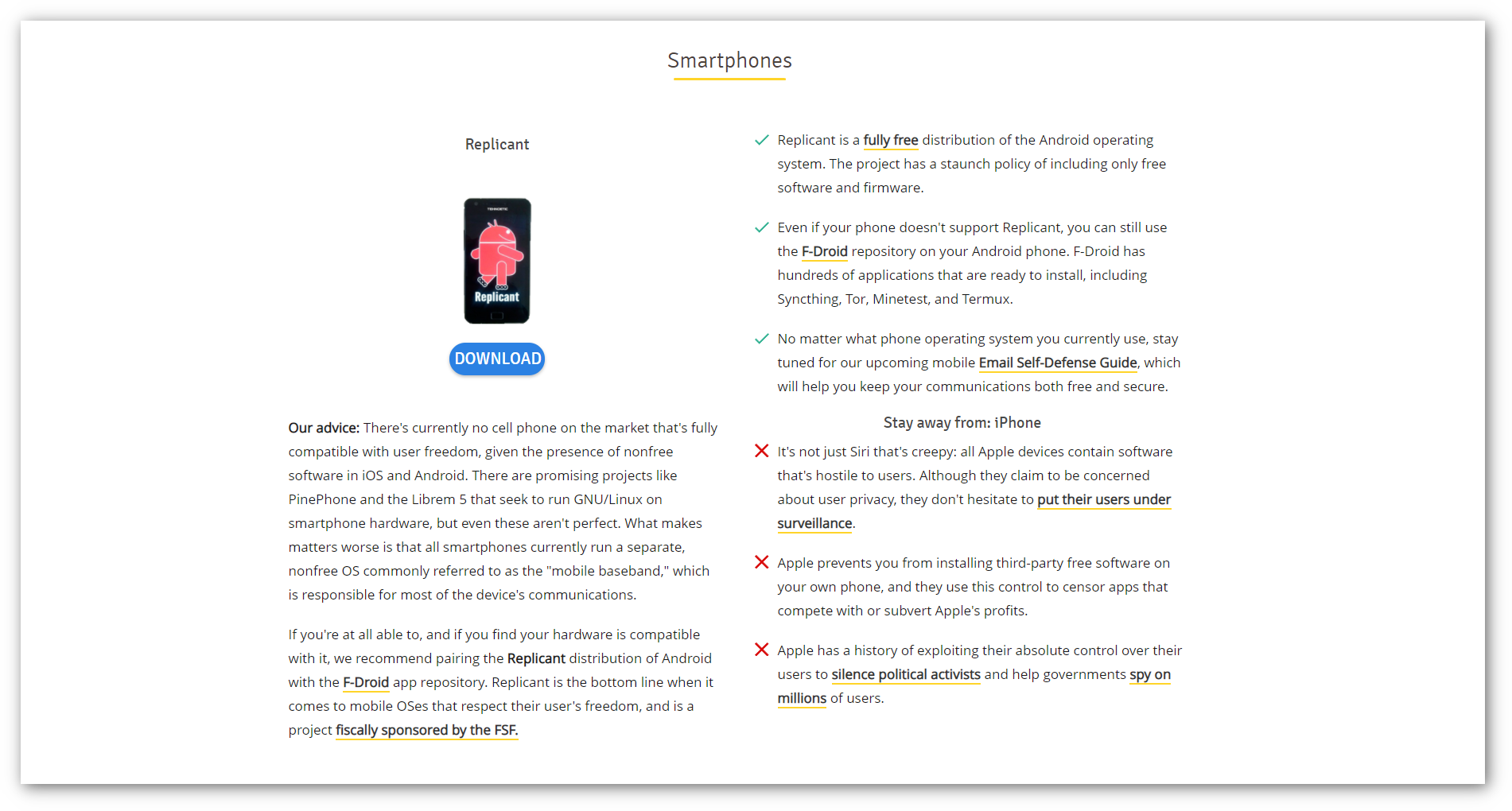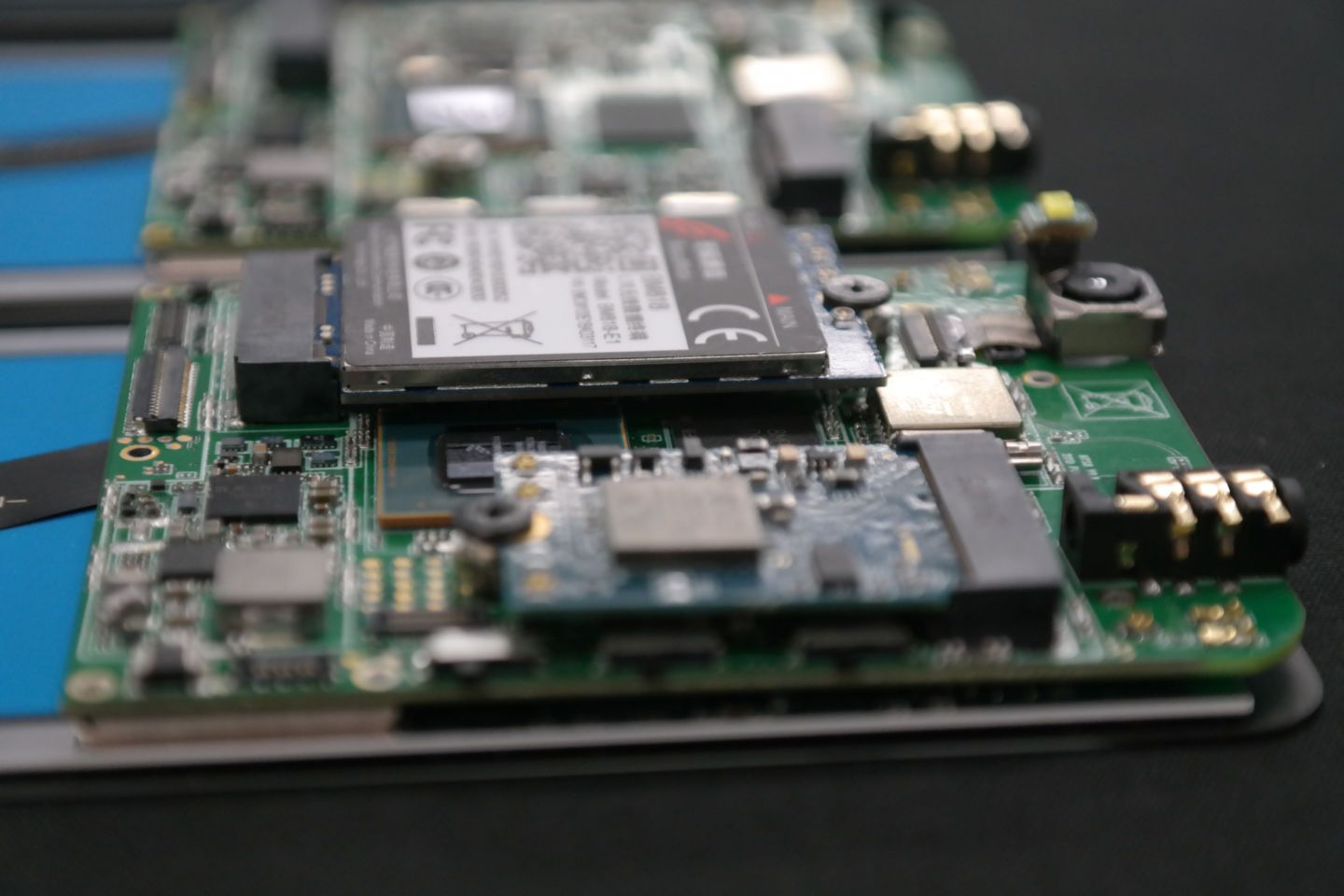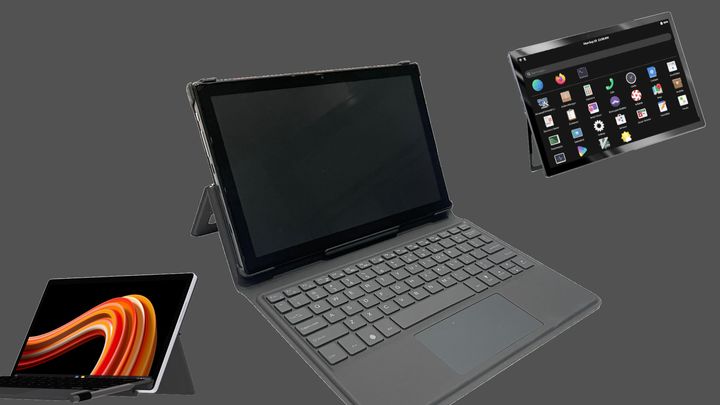Freedom and phone advice
A closer look at the smartphone advice from the Free Software Foundation

The cold months are here, people are looking forward to the holidays, and of course there is a new FSF Ethical Tech Giving Guide. This is the yearly Free Software Foundation article giving advice what hardware to avoid for reasons of freedom, and which ones are instead recommended.
This year, the guide starts at the top with advice for smartphones, which is great since these account for a large chunk of computing use these days. Let's take a closer look at the advice in this screenshot below.

This advice, however, has some flaws. It states, correctly, that iOS and Android are full of non-free components and firmware, which is currently true for all phones. Even the most freedom-respecting devices cannot really get around the issues of legalities of replacing the baseband (modem) firmware.
Then the advice gets to the PinePhone and the Librem 5. Again, the advice is entirely correct here. Both phones aim to have as little non-free software running as possible, and even separate the baseband electrically from the rest of the device. This still doesn't mean the baseband firmware is open source, and the FSF points this out as the reason why this is not the ultimate solution.
So the final advice given afterwards is to get an Android device with Replicant, the FSF-endorsed Android fork. This conveniently leaves out the fact that even with Replicant your baseband will not be open source, so it is in the best case as secure in that regard as the "pure" Linux phone solutions.

Later it claims, on the right, that Replicant is a fully free distribution because it does not ship any closed firmware. The truth here is that Replicant doesn't need to ship closed firmware because the firmware is already preinstalled on the phone from the factory. This means that it does run non-free firmware.
There is a thread on the Replicant mailing list discussing Replicant support for the PinePhone. In this thread, Replicant founder Dennis Carikli mentions that the PinePhone is more suitable for Replicant than some phones that are already supported. One of the downsides of the PinePhone for Replicant support is of course that the PinePhone does not ship with Android already, and having Android running on the PinePhone is not that easy due to the hardware setup.
In conclusion, the FSF advice seems to be to use a platform that they closely fund, but which does not improve on the points that Linux phone projects have been long trying to solve. In fact, both the Librem 5 and the PinePhone worked hard to improve the closed baseband situation from the hardware side, isolating it from the main bus with kill switches. It's not perfect, but it's as close as it's possible to get while still having a modem in the device.
Cover picture: PinePhone motherboard with modem (M. Braam, 2021)



Comments ()